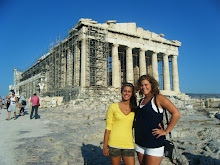Journalism has come a long way from daily newspapers, classified ads and the local police blotter. It used to be that if people wanted to hear about the goings on of another town, state or even country, they would hope to know someone living in that area that could report to them the news of that region. Or, let’s say a person with genuinely liberal views lived in a mostly conservative area. It used be extremely difficult, for example, for them to hear the views of a liberal candidate running for an election, because, other than what they heard around the community and what they could possibly get from neighboring communities, it was quite a burden to obtain information that was not readily available from their community. However, the way we news is reported and obtained today is severely different than what it used to be. Gone are the days of waiting for the newspaper to arrive on your doorstep. Gone are the days filled of miscommunication and misinformation. Today, with the vast digital news environment, news of all sorts is readily available and accessible.
This new system of reporting and obtaining news is changing the traditional definition of a journalist. In an age where many, many people have a working computer and even more people have Internet access, it has become so commonplace for an average citizen to report in a blog or on a webpage about something that is happening near their area, making them, to some extent, a journalist. This idea of “citizen journalism” is without question one of the more important aspects of a changing system of news. Without this ability, people would still be somewhat disconnected from each other regardless of the advancement of other technologies. Steve Outing, in his article The 11 Layers of Citizen Journalism, goes so far as to suggest creating websites devoted specifically to user-driven content, allowing a wide range of opinions and a variety of content. While citizen journalism is an important aspect of ever-changing digital journalism, I believe that the evolution of journalism is not about giving normal, every-day citizens the chance to try their hand at news reporting, but rather, giving them the tools to engage in the ultimate discussion.
The vastness of the Internet and the user-friendliness of websites gives anyone the opportunity to engage in something in which they believe. For example, in most cases, when a news article is published online, there is a feature that allows readers to post any comments or concerns they may have with the piece. So, if a person does not agree with what the reporter is saying, than they merely post a comment stating their issues. Then, another person sees that comment, disagrees with it, and posts yet another comment in regards to the previous one. Ultimately, this creates an ongoing discussion that would otherwise not be possible with conventional approaches to journalism. This does not just stop at online publications of newspapers. Blogs have also given individuals the chance to express their opinion without the restraints of a site moderator that could be found on various sites of newspapers. A person is able to create a blog, post their ideas, feelings, views and beliefs and let others read and comment on their work, creating, yet again, an ongoing discussion between people who otherwise would not have been able to interact. There are no editors who decide whether or not to publish said posts, and therefore, all opinions are welcome.
I believe that digital journalism has created the means for the ultimate discussion. With the ability to let individuals from all parts of the world participate and voice their own opinions, and the user-based format of the Internet, there are no more restraints to what can be read, and it is easier than ever for a person to develop their own ideas and voice them freely however they choose.




